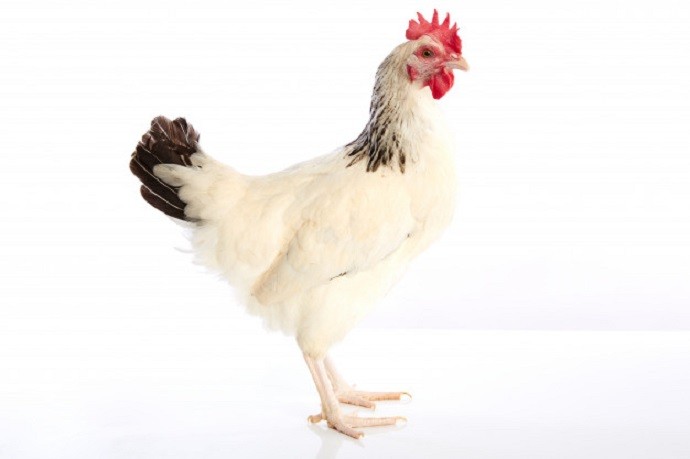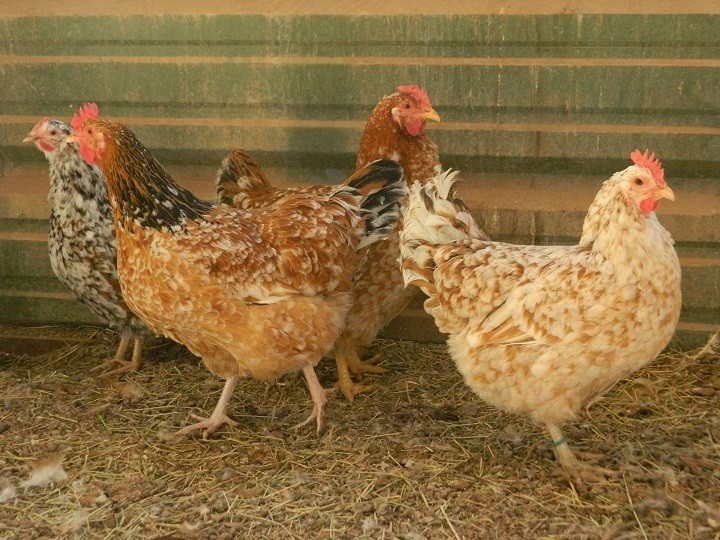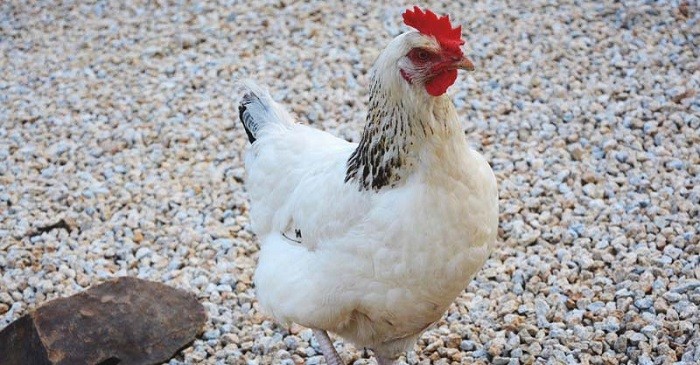Chicken are both great investments and, at the same time, excellent pets since the past. People have domesticated them, and they remain part of us in homesteads and farms all over the world. They have been the best pets ever; nowadays, you can find them even in most urban homes. Feeding and rearing them is not such a big deal. They fit people’s lives and can be domesticated in any part of the world. Apart from being the best companion at home, they ray eggs for consumption and commercial use. Their meat is also nutritious for our health.
There exist hundreds of chicken breeds in the world. They have been domesticated over many years in man’s history. They serve as wonderful pets and also a great investment at large. The Sussex chicken is one of the breeds commonly domesticated in most parts of the world. They are not only more productive but also their general appearance is appealing. The Sussex hens are best for people who need to raise dual-purpose chicken in their farms. In our article today, we will talk more about the Sussex chicken breeds at large. We will have idea about their appearance, features and how to domesticate them well.

Their General Appearance
The Sussex chickens are dazzling breeds with a beautiful and speckled appearance. The breeds are of several colors and shapes at large. Their appearance is everything that makes most farmers prefers domesticating the Sussex breeds. The feathers are somehow black or greenish-black. The ends of the feathers show it all; they end in creamy and whites. More about the appearance of the Sussex chicken can be seen from their features below.
Features of the Sussex Hens

As a farmer interested in the Sussex breeds, you need to have an idea about their features before you can make a step to domesticate them. When we talk about the features, we can look at particularly the size, color and shape of the breed at large. Below are a few specific features of these birds;
- The Sussex hens have medium-sized tails. When carried about, do it at an angle of 45 degrees.
- Its thighs are usually stout and short
- Their legs have a close-fitting scale. They are also straight and healthy.
- These breeds have four toes in each foot. The toes are well spread and straight.
- Their necks are gracefully curved with a full hackle.
- They have smooth faces and medium-sized heads that are not excessively feathered.
- They have curved and short beaks.
- Their beaks are white and horn
- The breeds have prominent eyes that are bright and always full
- The color of the eyes ranges from red and orange. The speckled types have red eyes while the light species have orange.
- In size, the Sussex hens are medium-sized. Their serrations are erect, fitted close to the head, and even.
- In some birds, the front of the combo at times folds; however, avoid this as much as you can.
- The Sussex wattles and earlobes have a fine texture
- When carrying them along, ensure the wings are straight and are along their body and as close as possible.
- The skin of these breeds is white, and they exhibit a medium texture
The Sussex hens are appealing at large. They are of various colors that make them beautiful worth domesticating. The Sussex breeds are also relatively easy to rear compared to other chicken breeds around the world. Why are you hesitating? Have them as your favorite pet at your home.
Chickens are needy pets. Despite the simple life the Sussex hens live, they need extensive care for them to be more productive at large. They need proper care that meets their overall health and well-being at large. Below are a few basic tips for caring for your Sussex chicken breed.
Housing
If you plan to domesticate the Sussex chicken breed, you need to consider how you will shelter them at large. Build them a shelter specifically for them in a safe environment. The common enemies to the Sussex breeds are rain and cold. Excessive heat in other areas is not ideal for these chicken breeds. Ensure their living space is kept clean and well ventilated.
The Sussex chicken shelters should be sturdily built. This way, you will keep them out of the wind and allow them to stay in a dry place. Ensure the roof is constructed well with no single leaks and space to blow wind into their room. You also need to house your hens in a safe place free from predators. Lastly, ensure proper lighting in their living space; a sufficient amount of light offers some levels of comfort to the chicken. Light the house, and keep the light on throughout.
Food
Maintaining proper diet and nutrition to your Sussex chicken breed is essential for their growth and general wellbeing. You will find several chicken feeds formulated and proven by experts to provide all the nutritional needs to your chicken breed in the market. You can supplement their regular feeds by allowing them to feed on kitchen scraps, fruit leftovers, and other vegetables.
They can also be left free to move around to search for food. The Sussex breeds like to scratch around. They will feed on-farm insects and pests the get on the way.
Note: The Sussex breeds get fat easily. Excessive fats in hens pose them to several health risks at large. Limit them from the kitchen scraps to avoid such situations from happening.
The chicks and laying Sussex chicken need special feeds at large. For the laying hens they need a diet that will help them produce quality eggs. Feed them on a diet full of calcium and proteins.
On the other hand, the chicks should be introduced to chicken feeds slowly as they grow. The chicks below two months need to start with the chick mash. They will go to growers feeds once they hit two months.
Diseases
The Sussex hens are prone to some sickness and parasites at large. You need to ensure your hens are mentally healthy and always engaged at large. Maintaining their living space well ventilated and clean is a top to keep parasites and sickness that might attack them.
You also need to provide your hens with a large space to grace. Use the recommended minimum space needs to keep the hens healthy and happy.
Treatment
We can’t complete a discussion about caring for the Sussex hens without stating a little about their treatment. The Sussex hens are vaccinated against several diseases. They include;
- Infectious bronchitis
- Fowl cholera
- Newcastle disease
- Infectious laryngotracheitis
- Marek’s disease
- Bird flu
- Gumboro
All these are common diseases that attack the Sussex chicken breeds. However, you can prevent the hens from contracting the disease, vaccinating them against such diseases. Routine vaccination is required to curb the infections. Start it as early as when the chicks are hatch and all through their stages of growth.
How Long the Sussex Breeds lay Eggs
The Sussex hens are great investments we have in our homes. They proficiently lay quality eggs for home consumption and commercial use. The hens take about twenty weeks to mature. This is the time they start laying eggs. Averagely, they lay between 200 and 300 eggs in a year.
Reasons You Should Raise the Sussex Hens.

The increasing demand for poultry products has made farmers consider raising different chicken breeds to reap big from them. Below are a few reasons you should consider the raising the Sussex hens;
They Provide us With an Adequate Supply of Eggs and Meat.
Eggs and meat are the main products we get from hens. You need a flock of the Sussex hens to get quality eggs for consumption and commercial use.
Sussex Hens are Easy to Raise
Feeding these kinds of the breed is simplest compared to other chicken breeds around. They like scratching a lot; they will scratch in search of worms and insects to feed on. They also eat greens and kitchen leftovers at large. You can order some commercial feed and give them once in a while.
We Use Their Waste as Manure.
Their wastes are great for our farm vegetation at large. Pile their waste in compost to make fertilizer. The wastes are high in nitrogen content, a great source of nutrients to plants.
They Help to Control Pests and Bugs.
Pests and insects are a source of food to the Sussex chicken. The Sussex hens feed on insects like ticks, cabbage worms, aphids, slugs, and ticks. This way, they lower the population of insects and pests that destroy our crops.
Conclusion
Chickens are excellent pets worth having in our homes. They are easy to domesticate compared to other animals and birds at large. When we single out our topic to specific chicken breeds around, the Sussex hens are easy to raise than all other breeds in the world. You only need to construct a safe living space and ensure they are treated and fed well. The Sussex hens are a breed you should consider domesticating.
